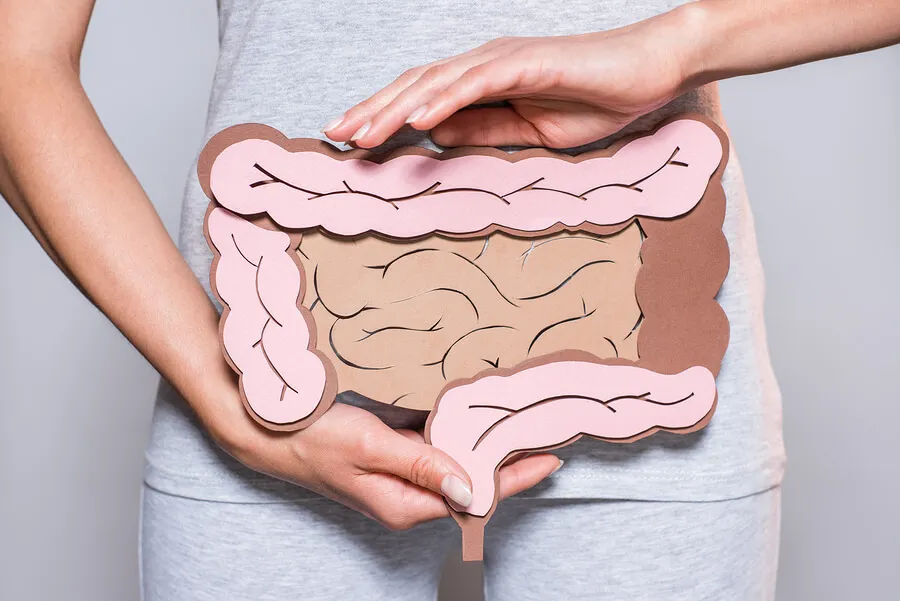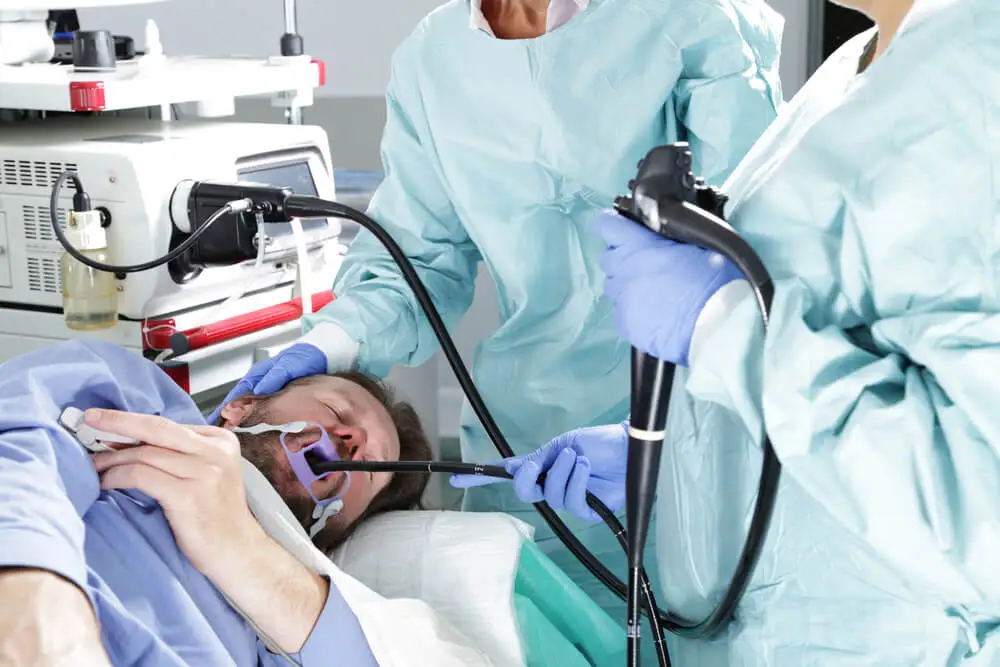Auto-fermentation Syndrome: Why Does it Occur?


Written and verified by the doctor Leonardo Biolatto
Self-fermentation syndrome is a rare condition that has become famous in recent years. It consists of certain microorganisms present in the intestine that synthesize alcohol.
To do so, they go through fermentation reactions on dietary carbohydrates. The result is that the sufferer is drunk without having consumed any alcoholic beverage.
This may seem interesting and curious, but it has a very negative impact on the sufferer’s life. It can even put your life at risk. Therefore, in this article, we’ll explain everything you need to know about auto-fermentation syndrome and why it occurs.
What is auto-fermentation syndrome?
Auto-fermentation syndrome is also known as auto-brewiery syndrome. This second term gives clues to its characteristics. It’s a rare condition, although this may also be because it’s underdiagnosed.
Intestinal fungi convert carbohydrates into alcohol, and that’s the simplest explanation for the condition. This alcohol passes into the blood, producing a state of drunkenness.
Because of this, it’s as if that person were drunk, but without having drunk any alcohol. The reason for this to occur is that certain intestinal fungi overgrow.
While it’s normal for this bacteria to be present in the digestive tract in intermediate concentrations, their excess could wreak havoc on our health. One of the possible harmful situations that could occur is this syndrome.
Sometimes the automatic fermentation syndrome occurs as a result of consuming a small amount of alcohol. Other times, however, there’s no trigger. Therefore, the patient may enter into a state of drunkenness without any direct relation to his or her alcohol consumption. The same symptoms and signs occur during binge drinking or hangovers.

Related symptoms
Self-fermentation syndrome was first discovered in 1950. It can affect both children and adults. The symptoms it produces are similar to common alcohol intoxication (i.e., binge drinking).
For example, disinhibition, increased sense of well-being, and euphoria may appear at the beginning. As the amount of alcohol in the blood increases, dizziness, confusion, decreased reflexes, and instability then begin.
It’s also common for breathing to become irregular and slower. Some people vomit, suffer from fainting, and their body temperature drops considerably. In cases of severe intoxication, there are convulsions or even ethyl coma.
According to a study published in BMJ Open Gastroenterology, in some cases, the first symptoms are limited to mood swings, delirium, and a kind of foggy consciousness.
On the other hand, we must bear in mind that auto-fermentation syndrome can have very negative impacts on the sufferer’s life. All the symptoms we have just mentioned give rise to chronic fatigue syndrome.
This, in turn, generates anxiety, low productivity, and depression. In addition, the social, occupational, and family consequences are dire. After all, everyone will tend to think that the patient is lying and has actually consumed alcohol.
Self-fermenting syndrome is also associated with an increased risk of accidents. For example, this may include falls in the home or problems in traffic. Therefore, it can have legal repercussions.
Causes of auto-fermentation syndrome
Auto-fermentation syndrome is caused by an overgrowth of intestinal fungi. A fermentation process occurs normally and physiologically in the intestine, but in this case, there’s an exaggeration.
When this condition occurs, this is not carried out by bacteria, but by fungi. The most commonly associated species are Candida glabrata and Saccharomyces cerevisiae.
Small amounts of alcohol are also produced in normal digestion. However, the liver is responsible for eliminating it so that intoxication never occurs.
The problem is that, in this syndrome, the quantities are high, and the liver can’t eliminate the alcohol completely. The symptoms of auto-fermentation syndrome increase when foods rich in starch or sugars are eaten.
We think you may be interested in reading this, too: The Ketogenic Diet and Alcohol: Everything You Need to Know
Risk factors for suffering from auto-fermentation syndrome
Scientists have identified a number of factors that increase the risk of suffering from this condition. For example, Crohn’s disease or irritable bowel syndrome. People with a weakened immune system are also more likely to suffer from it.
Diabetes, obesity, and the use of antibiotics are other closely related aspects. The excessive prescription of antibiotics alters the intestinal bacterial population. Therefore, fungi tend to proliferate more than usual, breaking the balance.
How is it diagnosed?
The diagnosis of auto-fermentation syndrome can be very complex. It’s a rare condition. In addition, many people use it as an excuse.
Therefore, the diagnosis should be as accurate as possible. To do this, it’s essential that the physician reviews the clinical history and knows all the episodes and their characteristics.
However, a series of complementary tests are usually necessary. This is especially necessary to try to rule out other diseases that may be associated with this condition. A blood and stool analysis is usually requested.
In the latter, the proportion of bacteria and fungi can be studied. This will reveal whether there’s fungal overgrowth.
In some cases, carbohydrate tests are used to provoke an episode and observe it. People with auto-fermentation syndrome will have increased blood alcohol levels after this test.
Finally, the doctor may order a colonoscopy or upper endoscopy. This test involves inserting a long, thin tube through the anus or mouth. This tube has a small camera at the tip that allows observation of the digestive tract inside.

Like this article? You may also like to read: What Happens When you Drink Alcohol On An Empty Stomach
Treatments for auto-fermentation syndrome
The treatment of Auto-fermentation syndrome is difficult. What doctors seek to do is a series of dietary modifications. The idea is to reduce or avoid all foods that have a very high percentage of carbohydrates.
This can be done by introducing more protein and avoiding foods such as white bread or rice. The same applies to pasta, cakes, sweets, and sugary drinks.
It’s recommended to maintain such a diet until the symptoms disappear. However, these products should not be abruptly reintroduced at any time.
On the other hand, in some patients, doctors may also recommend trying drug treatment. The most commonly used types of medications are antifungals, which help to reduce the number of fungi in the intestine. For example, fluconazole, itraconazole, or nystatin may be recommended.
Antibiotics or stronger drugs may be recommended if the condition persists. Some patients even report that probiotic supplements are helpful. However, their efficacy is not yet proven.
Self-fermenting syndrome can be dangerous
Self-fermenting syndrome is a rare condition. It consists of an excessive proliferation of intestinal fungi. These fungi ferment carbohydrates and convert them into alcohol.
The alcohol cannot be eliminated by the liver. That is why it produces effects similar to a binge without having consumed alcohol. The problem is that the episodes often become manifest without the patient expecting it abruptly.
This can lead to dire consequences, such as falls or accidents. It’s therefore important to diagnose and treat this syndrome properly to avoid complications and the great emotional impact it can have.
All cited sources were thoroughly reviewed by our team to ensure their quality, reliability, currency, and validity. The bibliography of this article was considered reliable and of academic or scientific accuracy.
- Case report and literature review of auto-brewery syndrome: probably an underdiagnosed medical condition | BMJ Open Gastroenterology. (n.d.). Retrieved April 22, 2021, from https://bmjopengastro.bmj.com/content/6/1/e000325
- Auto-brewery Syndrome – StatPearls – NCBI Bookshelf. (n.d.). Retrieved April 22, 2021, from https://www.ncbi.nlm.nih.gov/books/NBK513346/
- Icaza-Chávez, M. E. “Microbiota intestinal en la salud y la enfermedad.” Revista de gastroenterología de México 78.4 (2013): 240-248.
- Michel-Aceves, R. J., et al. “La microbiota y el microbioma intestinal humano.(Entre las llaves del reino y una nueva caja de Pandora).” Revista de Sanidad Militar 71.5 (2017): 443-448.
This text is provided for informational purposes only and does not replace consultation with a professional. If in doubt, consult your specialist.








